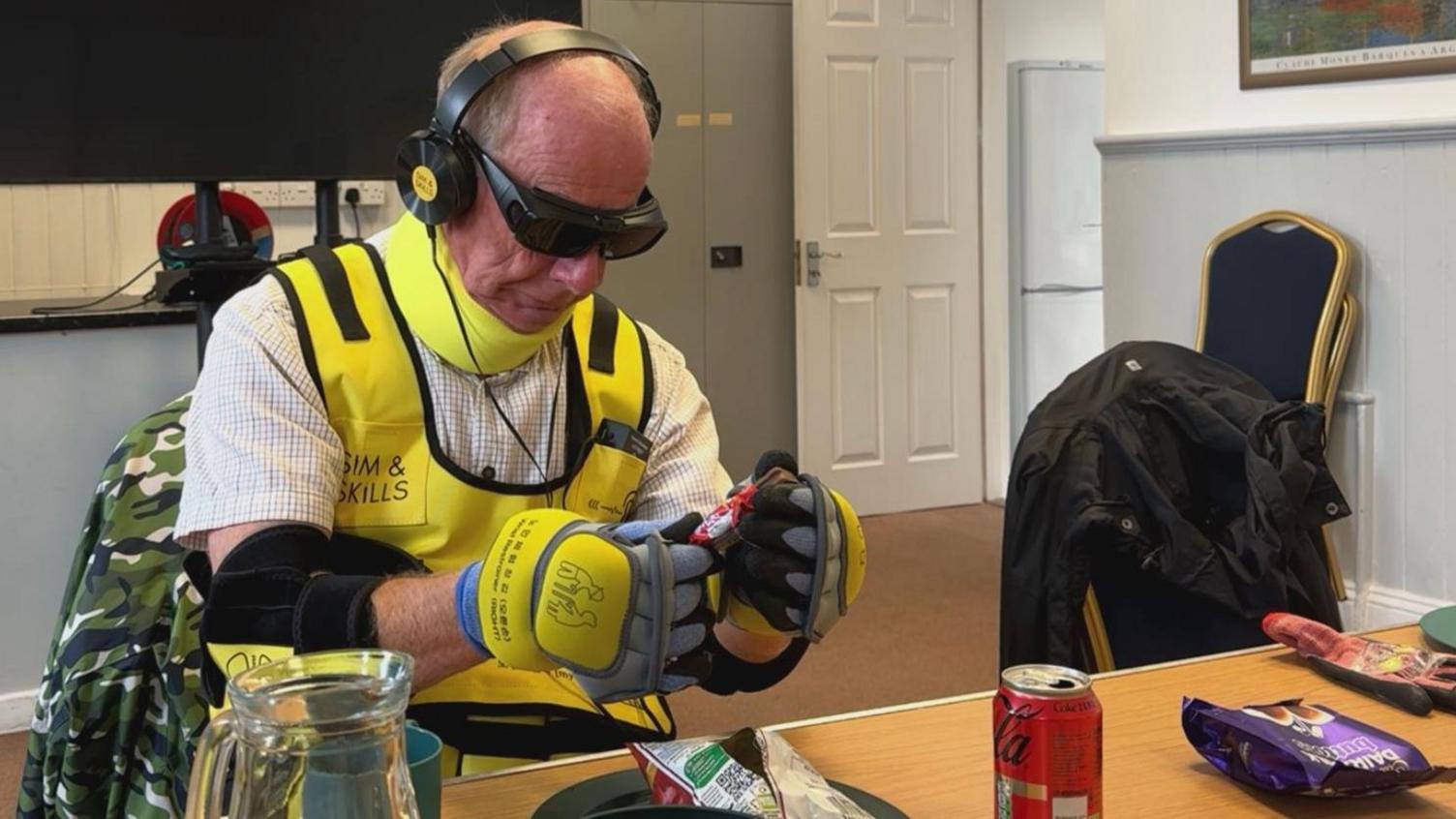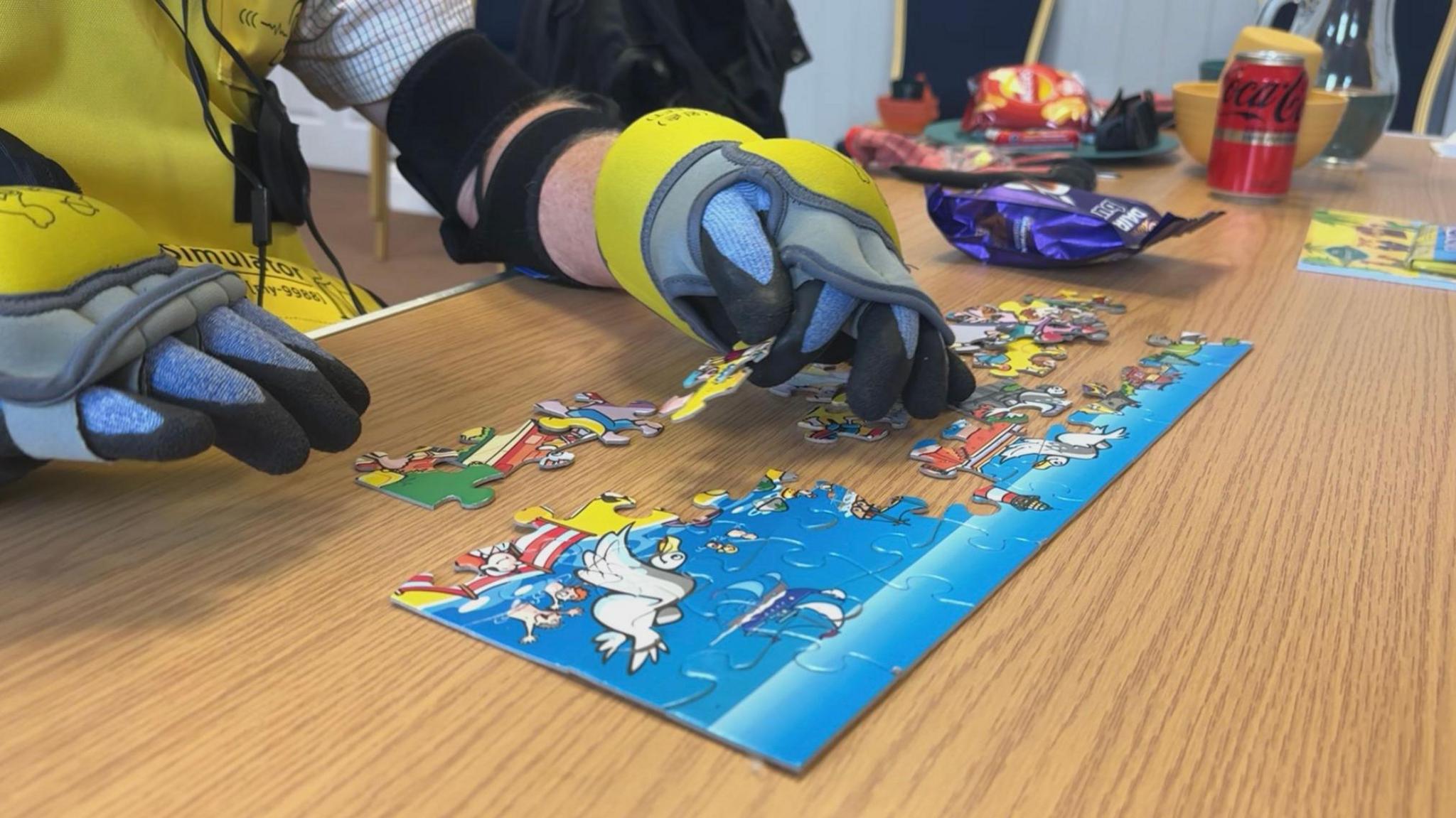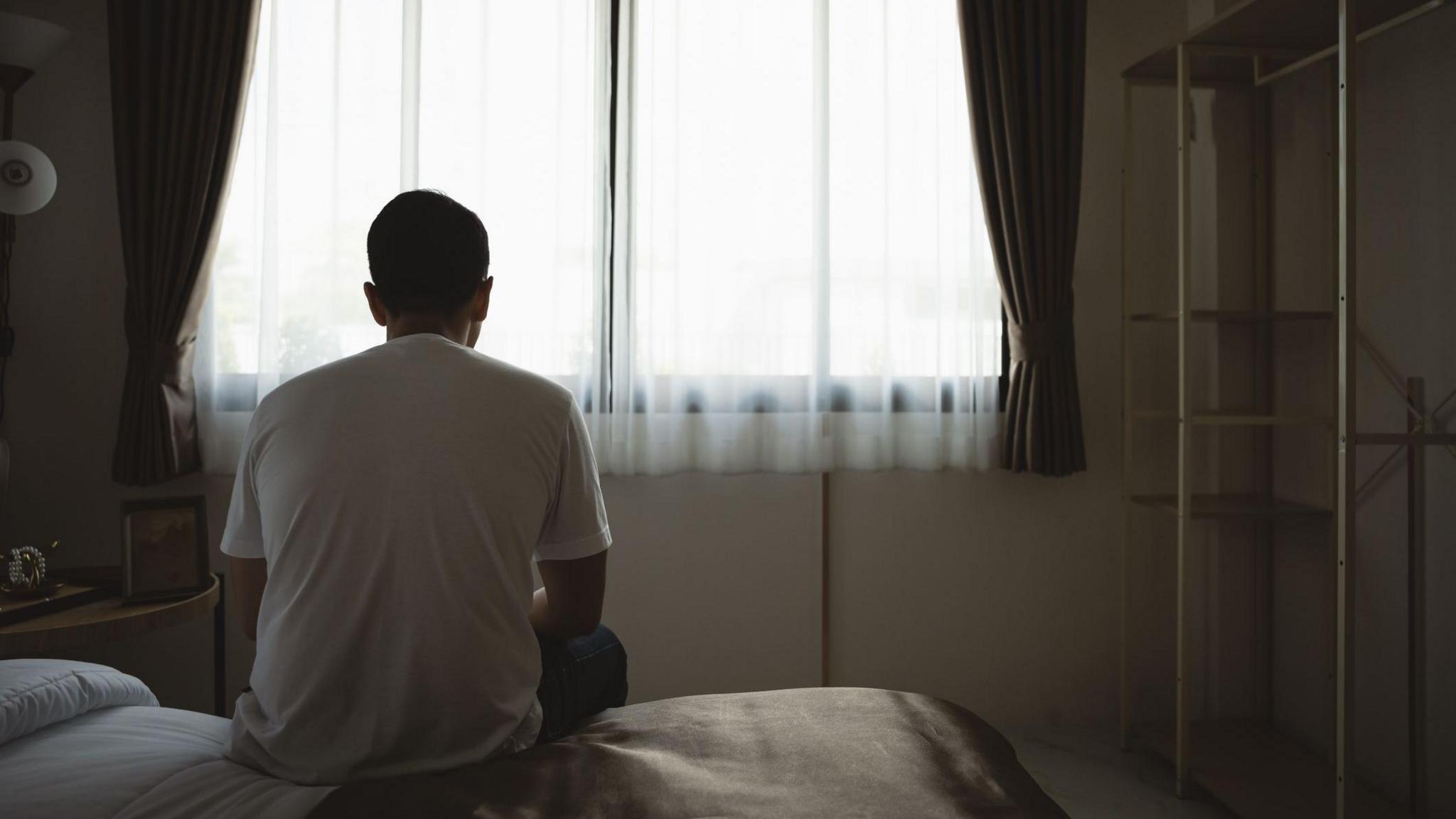Dementia suits show how tricky daily tasks can be

The suits hamper movement and vision giving an insight into life with dementia
- Published
Simulation suits are helping health workers to get a sense of the daily challenges faced by people with dementia because of sensory problems.
The suit also simulates conditions like arthritis, which can affect how people use their fingers, and special glasses block peripheral vision.
Guernsey's Specialist Dementia Admiral Nurses, Lottee Bonner and Michelle Martel, came up with the idea to show carers how frustrating doing simple tasks can be.
The £1,000 suits were funded by Guernsey Alzheimer's Association and Dementia Friendly Guernsey and are being used in workshops to help staff, care homes workers and families develop empathy and understand the need for patience.
The suits make it harder to do things like tie shoe laces, do a jigsaw or unwrap a chocolate bar.
Ms Bonner said: "The whole goal of this is empathy, looking at the whole of dementia as a thing, not just memory.
"One of the things that is really important is the sensory deficit."
Silvia, who has dementia and was at the launch, told BBC Guernsey she thought people could feel frustrated by tasks, adding "everybody does, don't they?"
Her husband John said: "I'm more aware now of what Silvia's going through."
He added: "Doing simple tasks takes quite a long time, it can do.
"We tend to give it a try and then if not, walk away, come back and try again."
'Be more patient'
Ms Bonner said that while most people know about memory loss, people with dementia "also have difficulty with movements and dexterity of tasks."
She hoped the suits will help people "understand more about the difficulties a person has and be more patient".
She explained that it might take someone with dementia up to an hour and a half to wash and dress themselves "and we generally don't allow that time or understand why it takes so long".
She highlighted the need to give people with dementia the time they need to do tasks, especially eating and drinking and advised people "don't just imagine that they can't do it and aren't hungry" and remove the food or drink.

Sensory issues can make it hard doing puzzles
Sensory issues can also give people problems assessing temperatures, she explained.
Clare Atkins, HSE's head of education and training, said patients with dementia are seen by staff throughout the health service.
"It's really valuable to us that our staff have that level of understanding of what dementia patients experience on a day-to-day basis.
"It will help them adapt their care to compensate for those things and stop seeing just the behaviours that dementia patients exhibit and move to that understanding of why they might be exhibiting."
She said a demonstration of the suit showed how patients might need staff "to offer them that bit more support, that bit more comfort" when they are doing tasks like tying shoelaces and made staff think about how they approach patients.
Follow BBC Guernsey on X, external and Facebook, external and Instagram, external. Send your story ideas to channel.islands@bbc.co.uk, external.
Related topics
- Published12 July

- Published23 January
